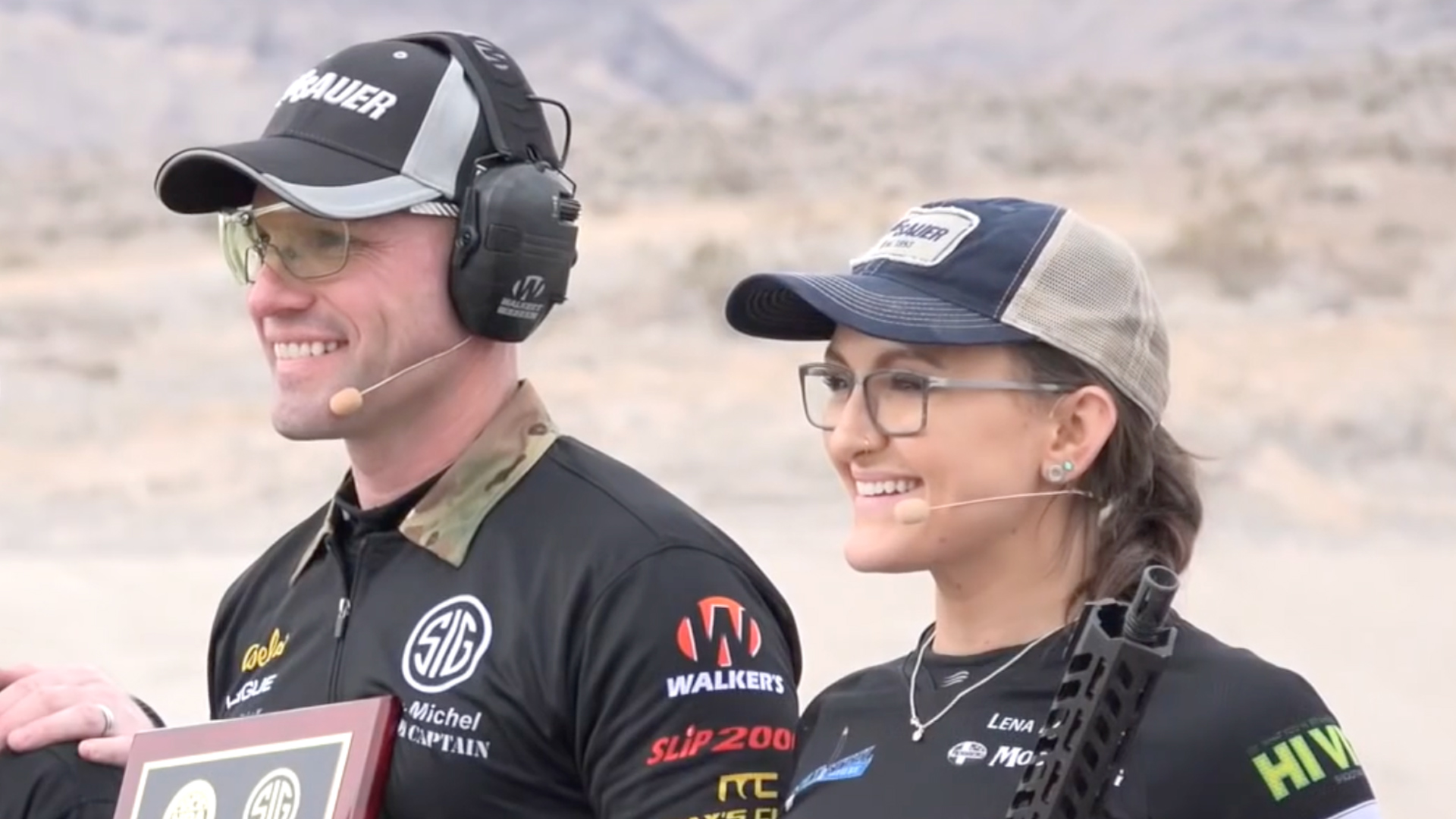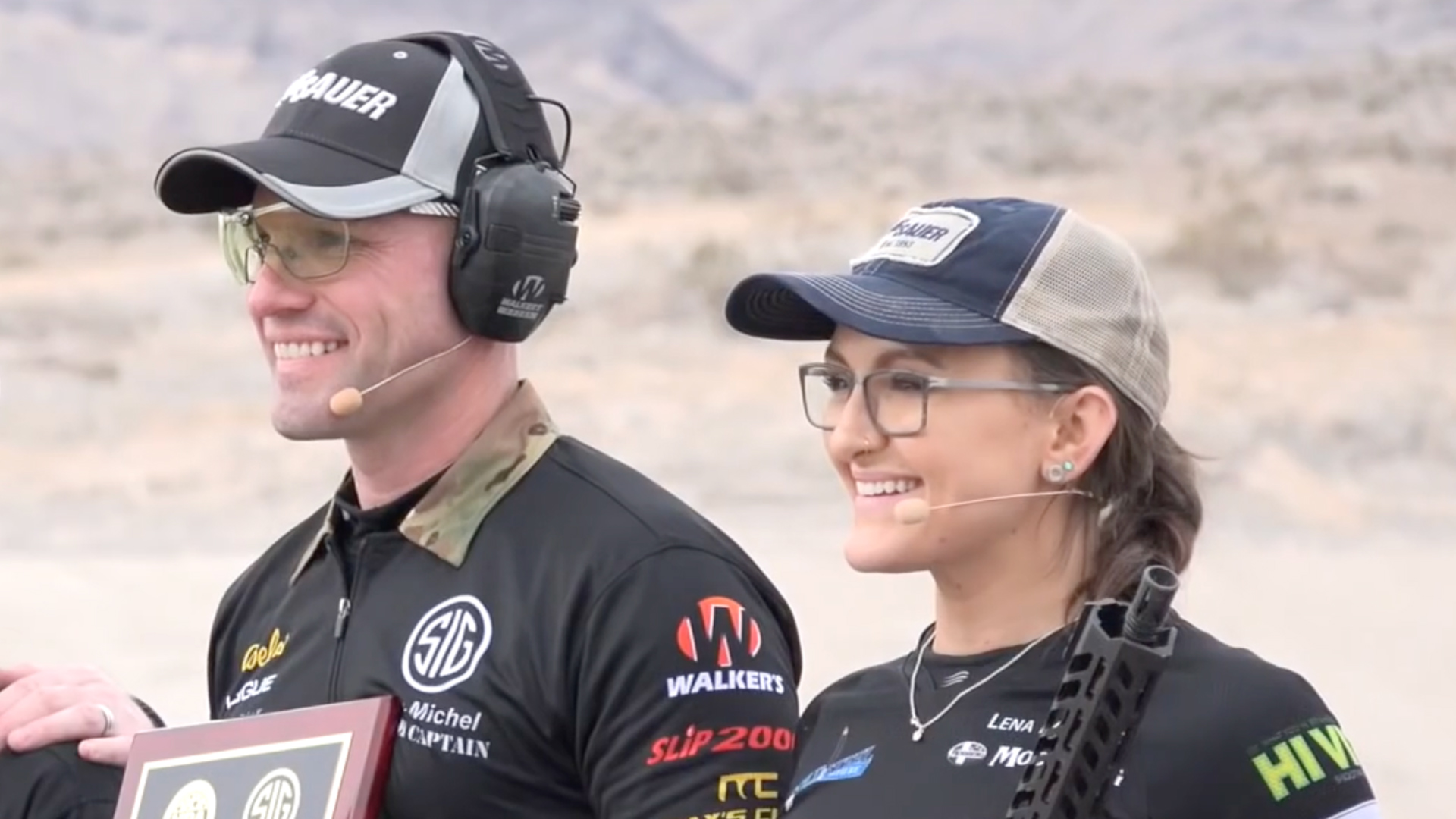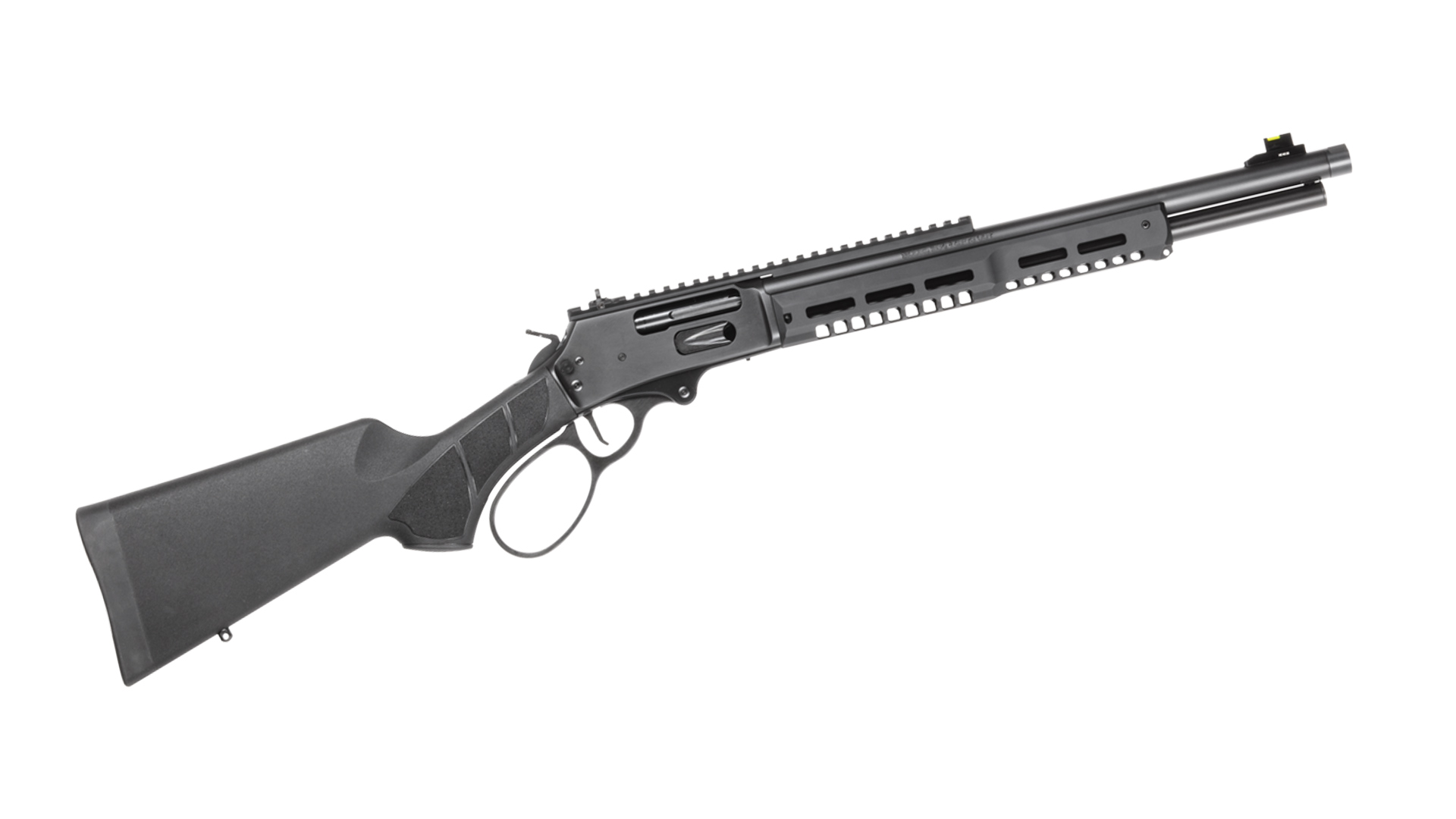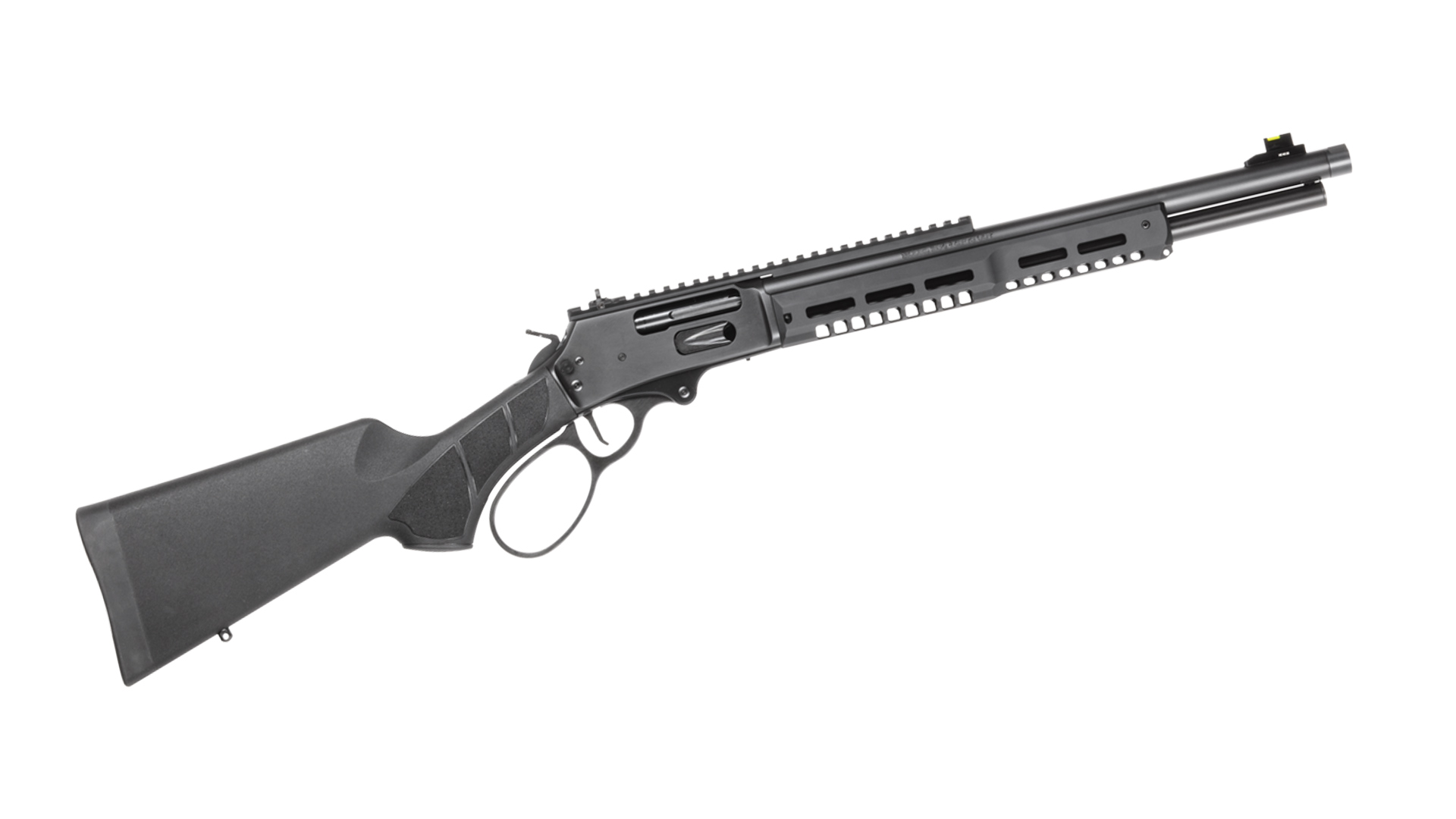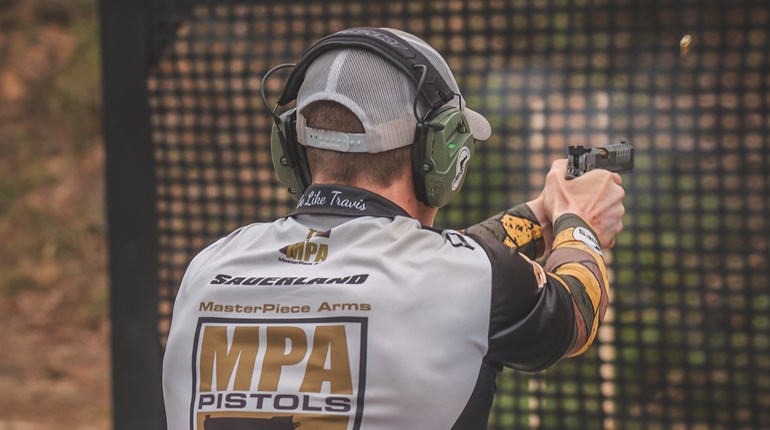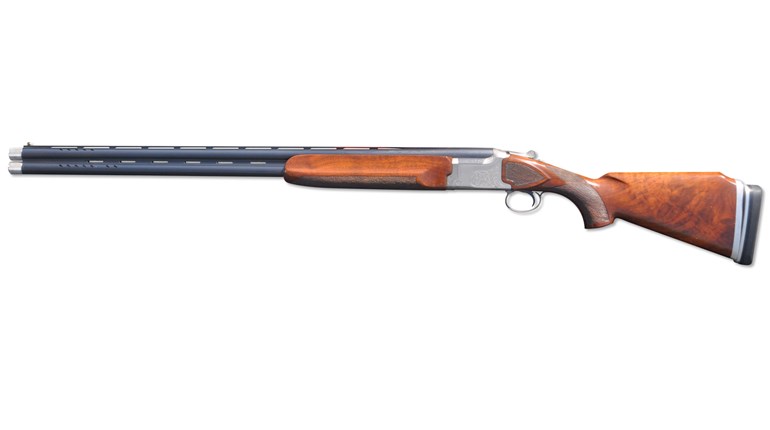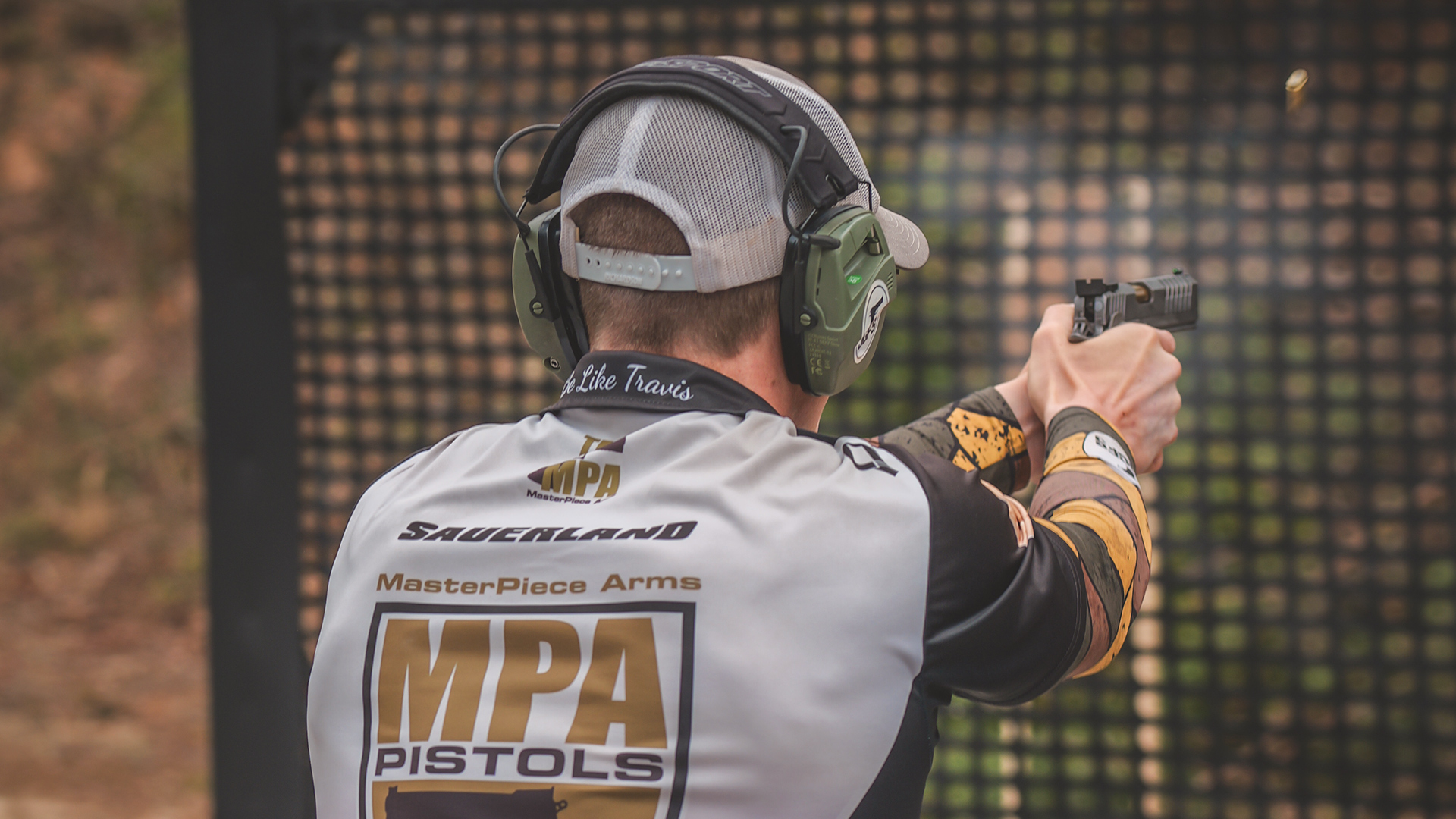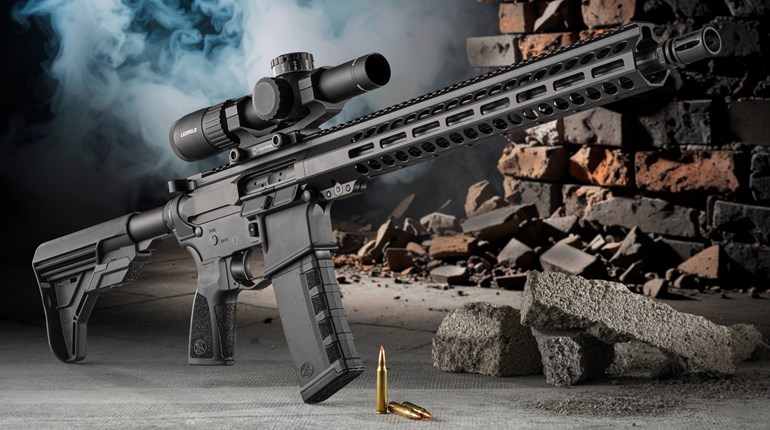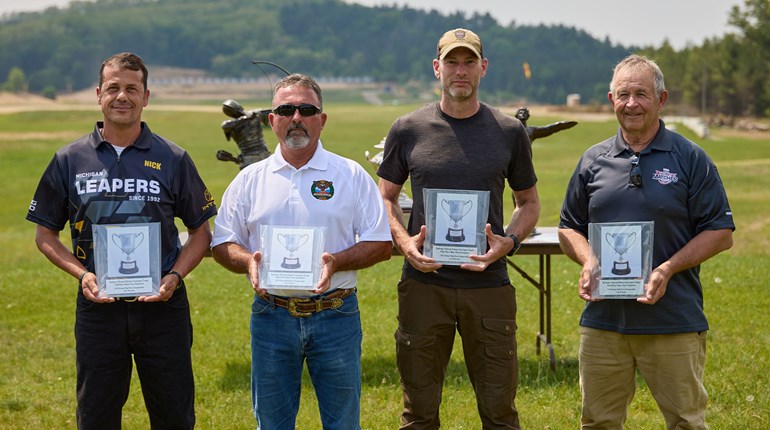
Things have changed throughout the history of competitive shotgun shooting. No one knows that better than champion shooter Keith Garcia. A police officer and competitor with plenty of awards to show for it, he’s a USPSA Grand Master and holds several 3-gun national titles.
Garcia has a reputation as one of the fastest shotgun reloaders in competition history, and has even changed his approach over time to stay competitive. Here are eight of his best tips for mastering the art of a safe and speedy shotgun reload.
1. KNOW YOUR HISTORY
To truly be good at a craft, you need to learn the history of it. Knowing the natural progression of what’s worked throughout time is vital for making style-related decisions. For example, back in the day, people loaded shotguns one shell at a time, but Garcia used a method to do it faster.
“Back then, there weren’t many people who could do it fast,” Garcia said. “Taran Butler, Daniel Horner, a couple of other guys and myself could load that way successfully and quickly. It was a huge advantage. You knew going into a match that if you could use that technique, you were going to be way ahead at every shotgun stage.”
2. FIND YOUR RHYTHM
Of course, things always change, and an even better option swept the sport. This forced Garcia and others to adapt and learn the newest way of doing things. It’s called quad loading.
“I fought it for a long time in terms of not switching over to quad loading,” Garcia said. “I was good at the other way. It was smooth. But quad loading was so much [more] efficient. Eventually, I had to switch over. It was too much of an advantage for my opponents. I had to figure out that system and develop a training program.
“I had certain markers I was using, how I’d hold the gun, where I’d put it during the reload process, how to get it back up safely and efficiently to shoot,” he continued. “All of this had to change. It wasn’t easy to give up the old way of doing it. But it was enough of an advantage to put in the time and effort.”
3. SELECT THE RIGHT GUN
Those who want to compete at a high level should look at the shotgun options on the market. Some of these are easier to reload than others. That’s true from a structural design standpoint, but especially with the action.
“For a shotgun in the tactical and limited divisions, you must look at the action,” Garcia said. “What operating system is running under. You generally have two types of actions: gas- or recoil inertia-operated systems.” Try out both options and see which one you are most effective with.
4. GRIP GUNS AND SHELLS HARD
Quad loading isn’t learned overnight. It takes time to master this method. But one of Garcia’s primary tips is to grip the gun and shells hard.
“If you’re loading that shotgun, and you want to do it fast and effectively, you must grip the shells hard,” Garcia said. “You must get in a rhythm where you push hard. You’re gripping and pushing hard. Unfortunately, a lot of people don’t do those two things. If you don’t, you lose shells between the shoulder and the gun, or between sets.”
5. DEVELOP MUSCLE MEMORY
With the goal of minimizing mistakes, you should practice in a manner that fosters success rather than failure. That’s called muscle memory. “One of the big things in 3-gun competition, especially if you’re shooting limited or tactical division, is being able to consistently get the shotgun loaded error-free,” Garcia said. Again, that takes repetition to master.
“With reloading when training, I’m building a solid foundation so I can repeat it under stress, under pressure and on the move,” Garcia said. “Building muscle memory is key. That comes from dry-firing and dryloading. Both are essential to building up the basis and ability to reload a shotgun safely, smoothly, and not drop loads to the ground as you put them in the gun. That’s a winning combination.”
6. ACCEPT MALFUNCTIONS HAPPEN
It’s true, shotguns are a little finicky sometimes, and Garcia acknowledges it. Still, he strives for a consistent, smooth loading process. This includes keeping the gun in tip-top shape.
“I’m also taking care of the shotgun. That’s maybe the biggest part of the equation,” Garcia explained. “I’ve watched a lot of students and other people shoot competitions. The guns don’t run as error-free as I would like. We all have issues from time to time. There are certain things you need to do with a shotgun to make sure it’s as reliable as possible. That includes what type of system you’re using. Then, make sure you’re keeping up with maintenance. You must run through the match without malfunctions.”
7. PROPER PREPARATION
Understand that the conditions impact the reloading process. From wet fingers on a rainy day, to dust-turned-mud in the magazine tube thanks to high humidity, you must prepare for everything.
“There are things that happen,” Garcia said. “Let’s say I’m shooting in Texas. It’s windy. It’s blowing hard. You have red clay. It’s in the South. Some clouds roll in and you get some rain. You’re dropping the gun in the dump bucket. Dust in the air gets in your magazine tube. Now you have water and mud. Whenever I’m shooting in those conditions, between each stage, I take the magazine tube spring out and make sure there is no dust, dirt or debris. I’ve found mud in there many times.”
8. LEARN FROM OTHERS
Just as quad loading wasn’t always around, something else will eventually rise to replace it. Or someone will learn to enhance it even more. That’s why it’s so important to keep your eyes open. Learn from other shooters. Understand how they operate and adapt your technique accordingly.
“When I teach classes, I always tell students, learn from my mistakes and experience, because I travel to a lot of different areas and matches,” Garcia said. “I’ve been to the Philippines, Canada and all over the country shooting. That kind of experience will help prepare you for things that can happen.”
Mastering the art of a safe, speedy shotgun reload isn’t easy. But it is achievable. Get that aspect of the game down, and you’re well on your way to becoming a championship-caliber competitive shooter.

